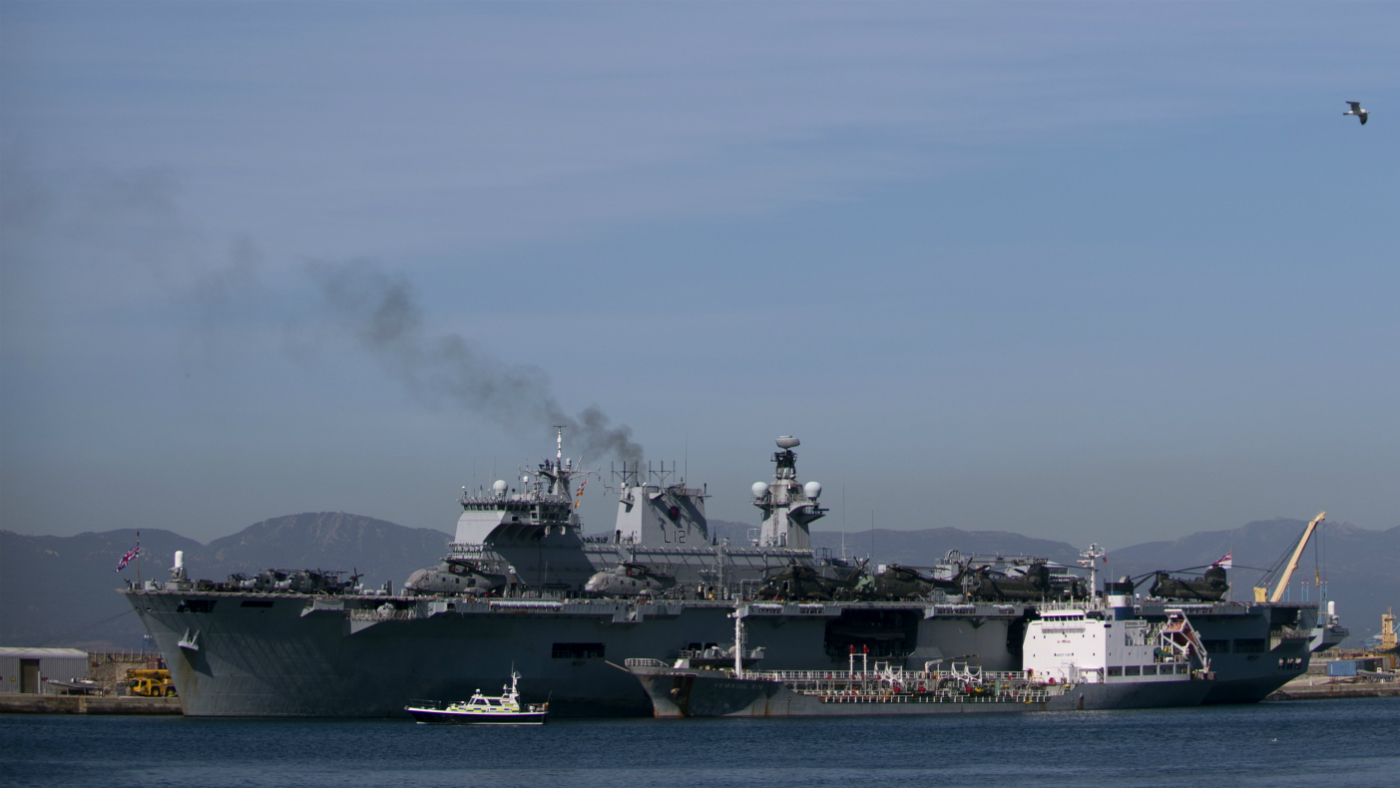Is the Royal Navy too small to deal with Iranian threat?
Defence minister demands more funding as crisis over seized tanker deepens

A free daily email with the biggest news stories of the day – and the best features from TheWeek.com
You are now subscribed
Your newsletter sign-up was successful
The Royal Navy is too small to counter the potential threat from Iran, the defence minister has admitted.
Tobias Ellwood told The Times: “The threats we’re facing are changing in front of us, the world is getting more complex. If we are wanting to continue to play this influential role on the international stage it will require further funding for our armed forces, not least the Royal Navy. Our Royal Navy is too small to manage our interests across the globe.”
The news comes after it emerged that Tehran had ignored warnings from a British warship against seizing a UK-flagged tanker in the Gulf. The Stena Impero and her 23-strong crew are being held by Iranian forces after they were taken on Friday while passing through the Strait of Hormuz.
The Week
Escape your echo chamber. Get the facts behind the news, plus analysis from multiple perspectives.

Sign up for The Week's Free Newsletters
From our morning news briefing to a weekly Good News Newsletter, get the best of The Week delivered directly to your inbox.
From our morning news briefing to a weekly Good News Newsletter, get the best of The Week delivered directly to your inbox.
The Guardian says the British government is facing accusations it had “failed to sufficiently guard its shipping in the Gulf.”
The Independent says the crisis has “roiled UK politics” ahead of a “potentially contentious week” in which Boris Johnson is likely to take over as prime minister from Theresa May.
In the Iranian media the mood is more defiant and cheery. The newspaper Kayhan cheered: “Tanker for tanker; Iran acted on its pledge,” while the conservative Resalat declared: “The Queen’s thieves captive in the strait”.
–––––––––––––––––––––––––––––––For more political analysis - and a concise, refreshing and balanced take on the week’s news agenda - try The Week magazine. Get your first six issues free–––––––––––––––––––––––––––––––
A free daily email with the biggest news stories of the day – and the best features from TheWeek.com
The news of the Royal Navy shortages comes on top of another embarrassment in which audio was released of the Iranian Revolutionary Guard and the Royal Navy both giving instructions to the UK-flagged tanker before it was seized by Tehran.
In the recording, an Iranian officer can be heard telling the Stena Impero: “If you obey, you will be safe. Alter your course to 360 degrees immediately, over.”
The Royal Navy asks the Iranians to “please confirm that you are not intending to violate international law by unlawfully attempting to board the MV Stena”.
Meanwhile, the Daily Telegraph reports warnings that Iran-backed terrorist cells could launch attacks in the UK if the crisis between London and Tehran deepens.
Intelligence sources claim that Tehran has sleeper terror cells across Europe and could give the go ahead for attacks in response to a conflict in the Gulf.
One source said: “Iran uses proxies and they have control of a network of individuals linked to Hezbollah.
“Iran has Hezbollah operatives in position to carry out a terrorist attack in the event of a conflict. That is the nature of the domestic threat Iran poses to the UK.”
In 2015, a cell was reportedly caught stockpiling tonnes of explosive materials on the outskirts of London.
–––––––––––––––––––––––––––––––For more political analysis - and a concise, refreshing and balanced take on the week’s news agenda - try The Week magazine. Get your first six issues free–––––––––––––––––––––––––––––––
-
 Crisis in Cuba: a ‘golden opportunity’ for Washington?
Crisis in Cuba: a ‘golden opportunity’ for Washington?Talking Point The Trump administration is applying the pressure, and with Latin America swinging to the right, Havana is becoming more ‘politically isolated’
-
 5 thoroughly redacted cartoons about Pam Bondi protecting predators
5 thoroughly redacted cartoons about Pam Bondi protecting predatorsCartoons Artists take on the real victim, types of protection, and more
-
 Palestine Action and the trouble with defining terrorism
Palestine Action and the trouble with defining terrorismIn the Spotlight The issues with proscribing the group ‘became apparent as soon as the police began putting it into practice’
-
 Will increasing tensions with Iran boil over into war?
Will increasing tensions with Iran boil over into war?Today’s Big Question President Donald Trump has recently been threatening the country
-
 Epstein files topple law CEO, roil UK government
Epstein files topple law CEO, roil UK governmentSpeed Read Peter Mandelson, Britain’s former ambassador to the US, is caught up in the scandal
-
 Iran and US prepare to meet after skirmishes
Iran and US prepare to meet after skirmishesSpeed Read The incident comes amid heightened tensions in the Middle East
-
 Which way will Trump go on Iran?
Which way will Trump go on Iran?Today’s Big Question Diplomatic talks set to be held in Turkey on Friday, but failure to reach an agreement could have ‘terrible’ global ramifications
-
 Israel retrieves final hostage’s body from Gaza
Israel retrieves final hostage’s body from GazaSpeed Read The 24-year-old police officer was killed during the initial Hamas attack
-
 China’s Xi targets top general in growing purge
China’s Xi targets top general in growing purgeSpeed Read Zhang Youxia is being investigated over ‘grave violations’ of the law
-
 Panama and Canada are negotiating over a crucial copper mine
Panama and Canada are negotiating over a crucial copper mineIn the Spotlight Panama is set to make a final decision on the mine this summer
-
 Iran unleashes carnage on its own people
Iran unleashes carnage on its own peopleFeature Demonstrations began in late December as an economic protest